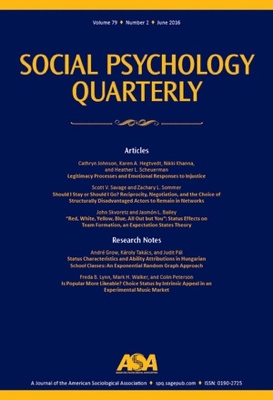Published 2016 July 29 in Social Psychology Quarterly (before print)
Theorized as objective or constructed, risk is recognized as unequally distributed across social hierarchies. Yet the process by which social forces shape risk and risk emotions remains unknown. The pharmaceutical industry depends on healthy individuals to voluntarily test early-stage, investigational drugs in exchange for financial compensation. Emblematic of risk in late modernity, Phase I testing is a rich site for examining how class and race shape configurations of emotion and risk. Using interview data from 178 healthy trial participants, this article examines emotion and risk as mutually constituting processes linked to biographical context and social structure. Biographical events like economic insecurity and incarceration influence how risk is felt by providing comparative experiences of felt risk and felt benefits. Such events, in turn, are structured by class-based and racial inequalities, linking class and race positions to primary emotional experiences of risk.

